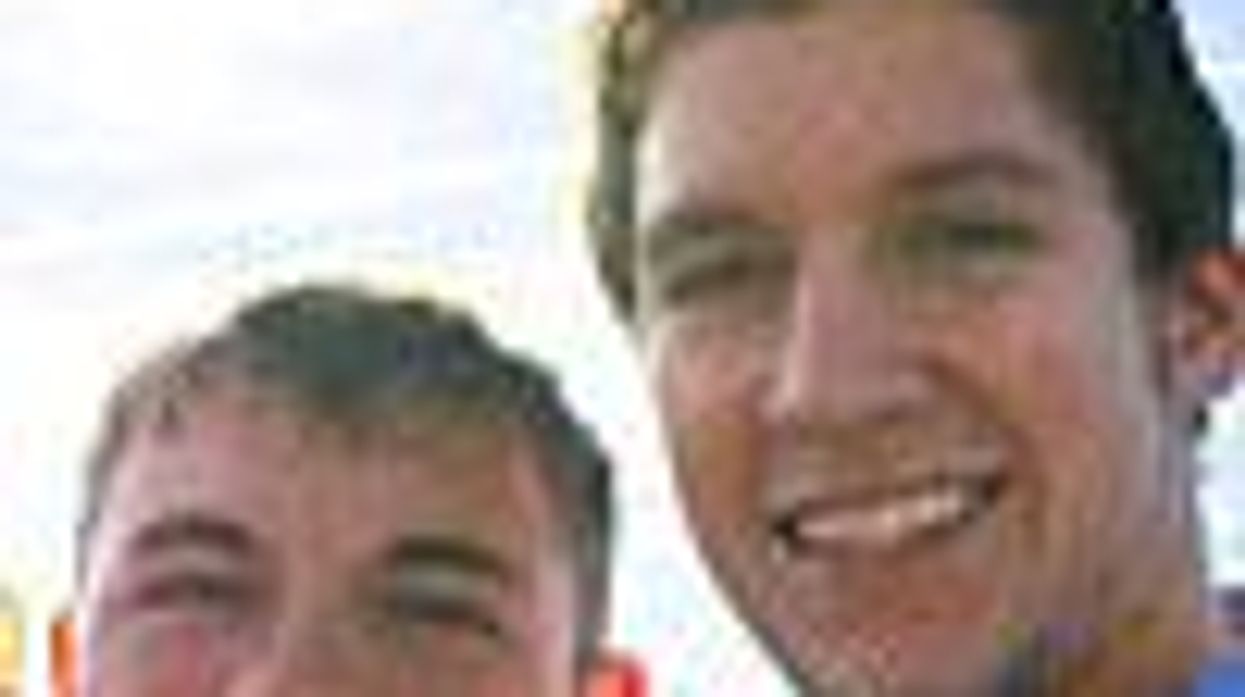
A young queer activist confronts the military--and the law--in an attempt to kill "don't ask, don't tell."
November 08 2006 12:00 AM EST
By continuing to use our site, you agree to our Privacy Policy and Terms of Use.

In late September a small group of dedicated young men and women gathered in the parking lot of Gonzaga University, a small private Catholic school in Washington State. I was part of that brigade of 12 to 15 people who from there embarked on a journey that would take us to a local military recruitment center to demonstrate against the "don't ask, don't tell" policy, which bans openly gay, lesbian, and bisexual people from serving in the armed forces.
My friend Dana Corral and I were prepared to enlist in the Army as openly gay recruits. We held a small vigil in recognition of the thousands of soldiers who currently serve their country in silence. We then pondered the life teachings of both Gandhi and Martin Luther King Jr. Then we headed to the doors of the recruitment center.
When we arrived we were met by a surprised group of movers, who were rearranging desks and furniture for the center, as well as a warm and friendly recruiter, Sergeant Clark. He was shocked too; he had assumed that our announcement earlier that morning was just a hoax. Dana and I approached him, explained who we were, and announced that we wanted to enlist in the Army but that we were not willing to lie about who we are. He said he empathized with us and explained that because of the policy he was not permitted to allow us to apply: We were technically unqualified. We explained that we are part of a national campaign known as Right to Serve and that as part of our campaign we would hold a sit-in. In his kindness, his immediate reaction was to look for chairs for us.
Members of the news media came in, and as the organizer I started to detail all of the hypocrisy of the "don't ask, don't tell" policy and I told the reporters that we were not willing to leave until we had a commitment from our state and federal legislators to end "don't ask, don't tell." The recruiter probably would have let us stay all week, month, or year if he could have, but his superior instructed him to call the police and he had to comply. He asked the reporters and the rest of our supporters to leave, and I declared that three of us--Dana, Nick LaPalm (our straight ally), and I--wouldn't leave, that we'd have to be removed by force. We waited there for two hours, and outside the media and our sign-wielding supporters remained, until finally an officer arrived.
The officer approached the center, stopping to look at the signs of our supporters, signs that read "Support our troops... the gay ones too," and then she came in to talk with us. We told her who we were and that we were not willing to leave until we were arrested. She agreed, and we willingly followed her to her car with our hands behind our backs. She issued a citation for trespassing, but the huge smile on her face conveyed her obvious support of our message and actions. My favorite quote from her was "I may be smiling, but it doesn't mean I'm not taking this seriously."
In the end, we learned that to stand up for what we believe in is not only the right thing to do but an obligation that we all must take upon ourselves. Secondly we learned that sometimes we find allies in the strangest places, but that just goes to show that people are sometimes more open then we assume and our initial fear is not always warranted.
Charlie Kirk DID say stoning gay people was the 'perfect law' — and these other heinous quotes